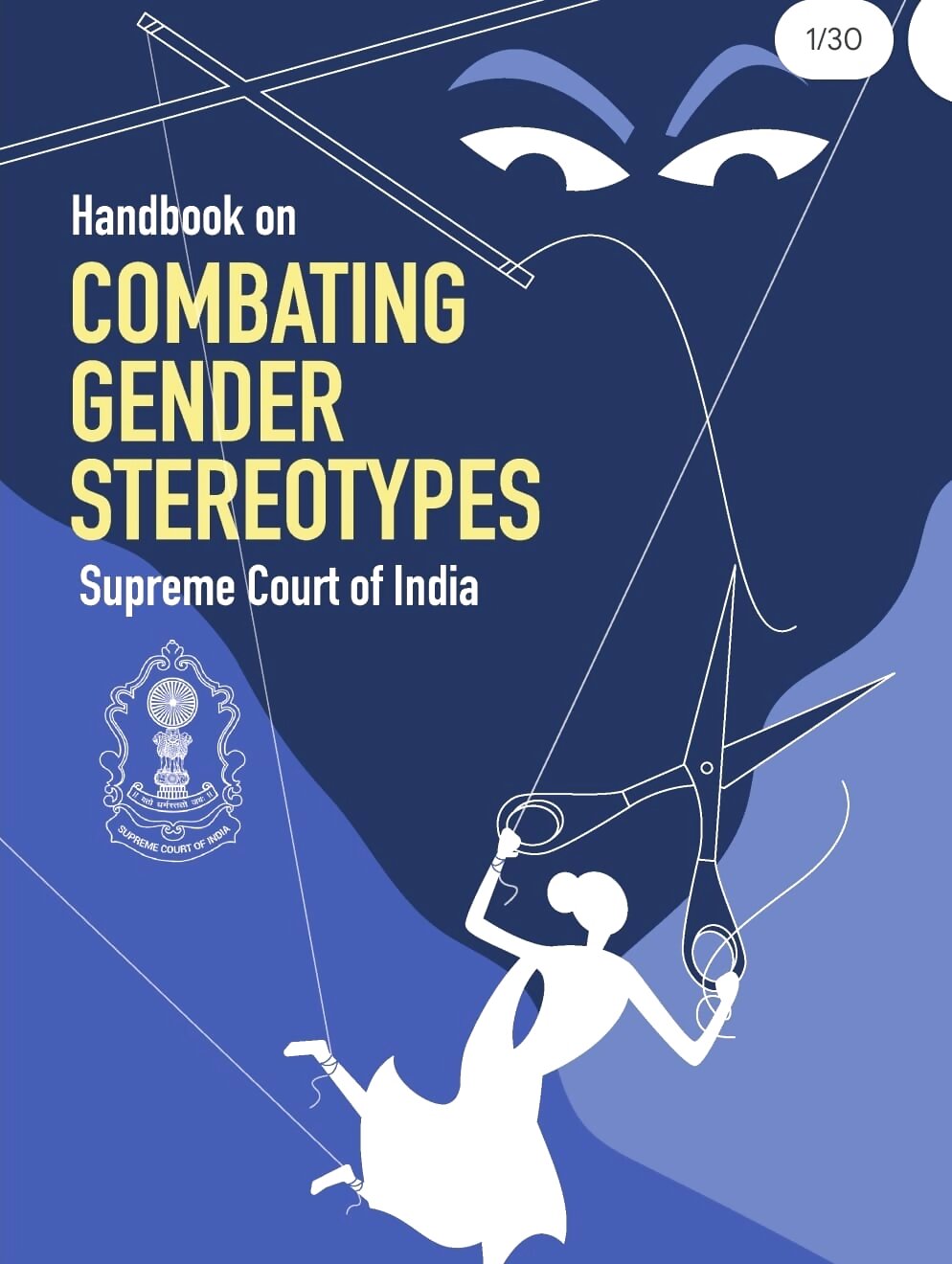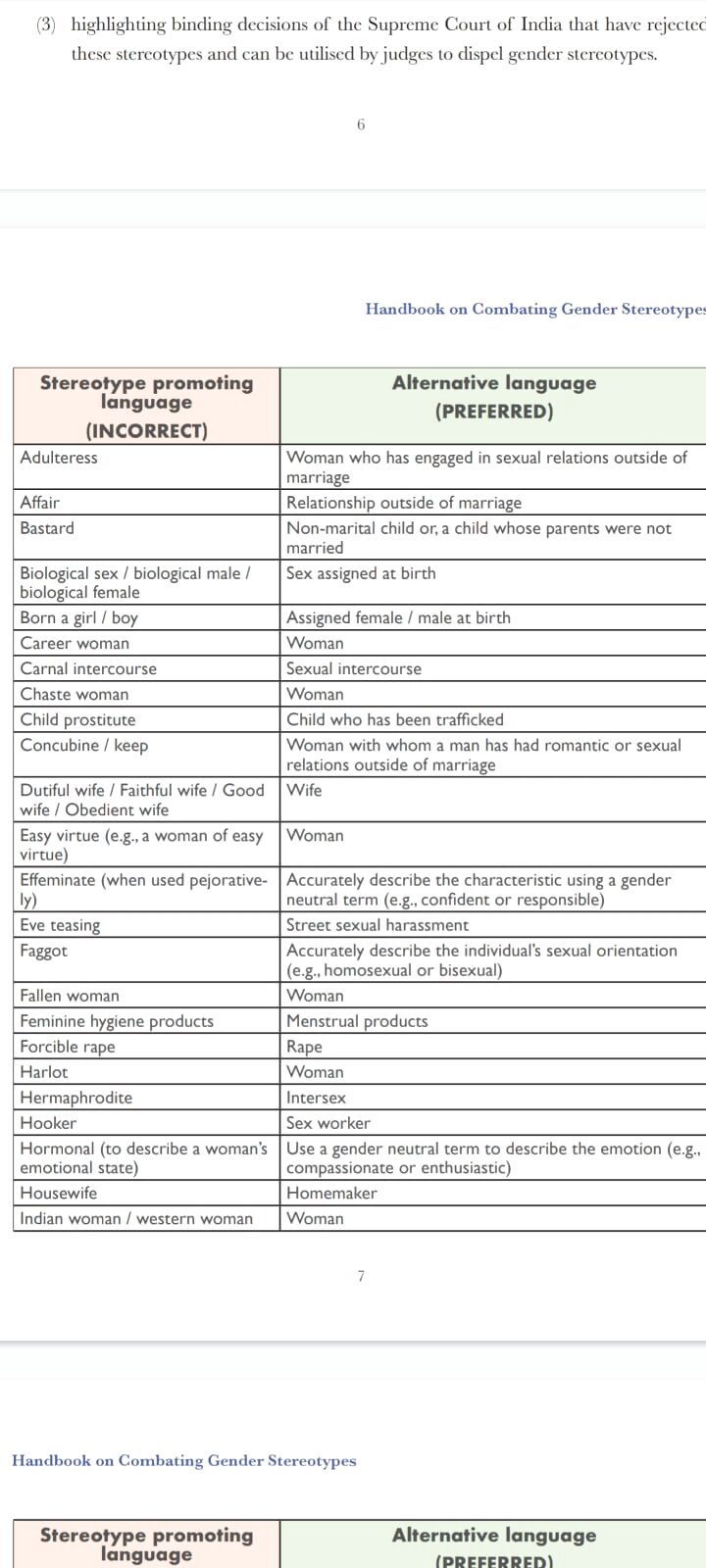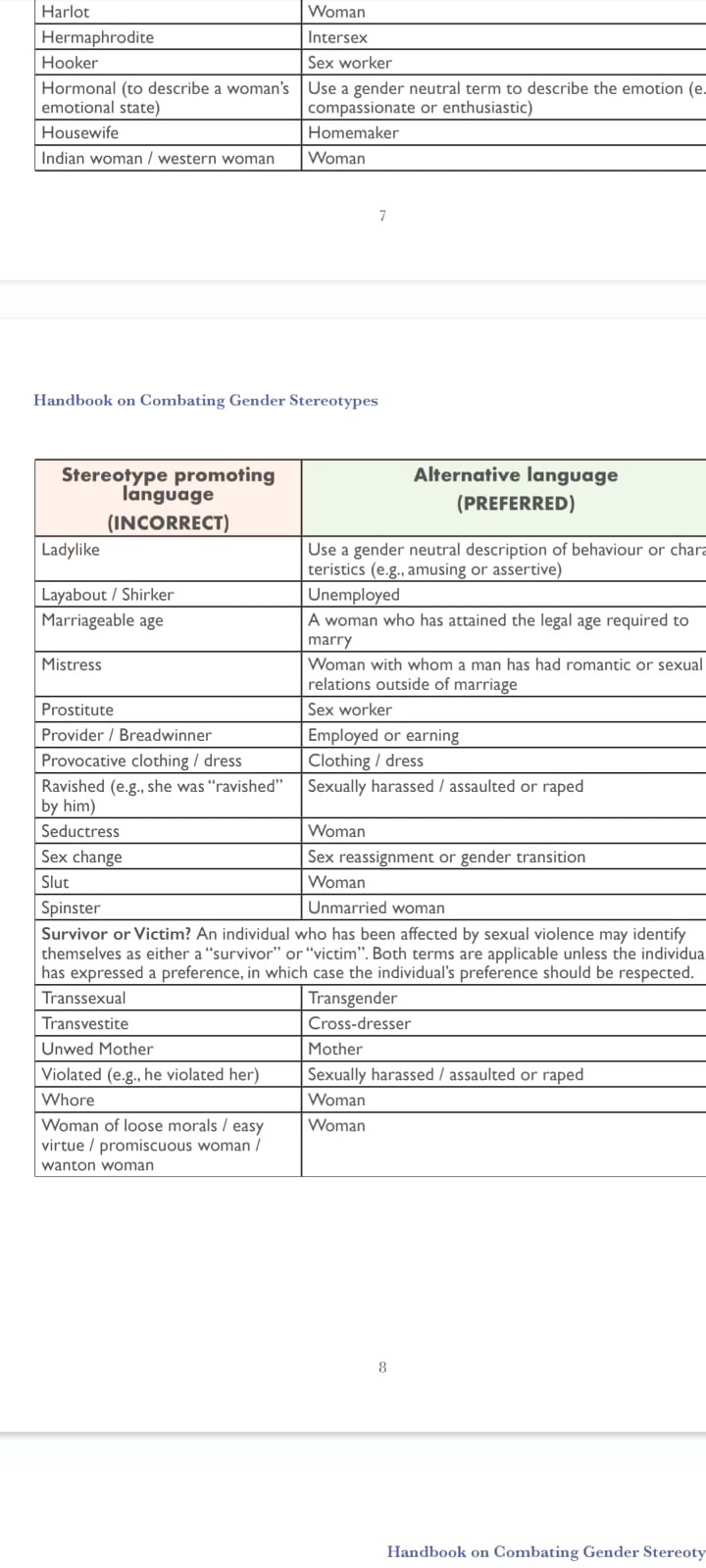
views
In yet another imitative to provide for a more gender-sensitised and equal environment for all, the Supreme Court on Wednesday released a fresh handbook for judges to avoid the usage of gender-stereotypical terms like “adulteress”, “mistress”, “prostitute”, etc. The “Handbook on Combating Gender Stereotypes” seeks to empower judges and members of the legal community to identify, understand, and counteract harmful stereotypes about women.
“Even when the use of stereotypes does not alter the outcome of a case, stereotypical language may reinforce ideas contrary to our constitutional ethos. Language is critical to the life of the law. Words are the vehicle through which the values of the law are communicated. Words transmit the ultimate intention of the lawmaker or the judge to the nation. However, the language a judge uses reflects not only their interpretation of the law, but their perception of society as well,” Chief Justice of India DY Chandrachud says in the foreword of the handbook.

“Where the language of judicial discourse reflects antiquated or incorrect ideas about women, it inhibits the transformative project of the law and the Constitution of India, which seek to secure equal rights to all persons, irrespective of gender,” he adds.
The handbook provides for alternate terms that shall be used instead of the stereotypical words. For example, “adulteress” shall be referred to as “woman who has engaged in sexual relations outside of marriage”, “affair” as “relationship outside of marriage”, “child prostitute” as “child who has been trafficked”, etc.

The handbook also goes on to address the stereotypes that exist in society and also shows the reality behind them. Just like there’s a stereotype that “it is not possible for a man to rape a sex worker”, while the reality is “it is possible for a man to rape a sex worker. Sex workers do not consent to engage in sexual relations with any or all men by virtue of their profession. The offence of rape may be made out if the sex worker does not consent for any reason, including the reason that the man was unwilling to pay her. Sex workers are one of the groups which are most vulnerable to sexual violence.”

Addressing a gathering at the Supreme Court on Tuesday during the Independence Day celebrations, the CJI announced the release of the handbook. “Our aim for the future is to ensure that our judicial systems are capable of managing the expectations of the Indian people. Legitimacy of our institutions can be secured only when the courts establish themselves as robust independent institutions, impervious to the identity of the litigant before us, but cognisant at the same time of their context. In this regard, the judges and lawyers should conduct themselves in a manner which will inspire confidence about the independence and the integrity of our legal processes,” the CJI said.
“Recently, the Supreme Court released the Sensitization module for the judiciary on the LGBTQIA+ community and will, very soon, be releasing the Handbook on Combating Gender Stereotypes in Judicial decision-making. These efforts are aimed to ensure that we look inwards, question our biases, and insulate judicial institutions from embodying and entrenching those biases,” he added




















Comments
0 comment